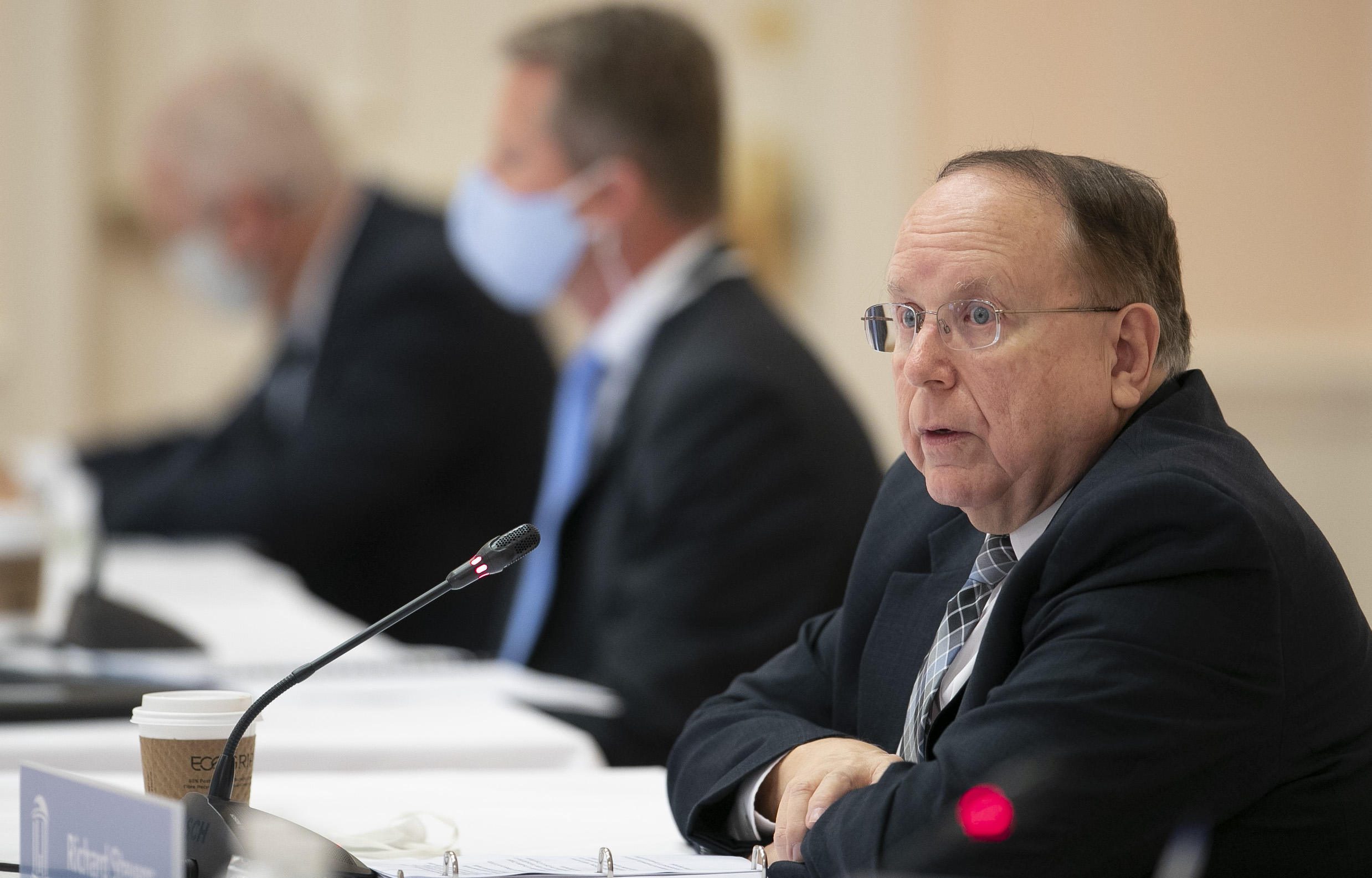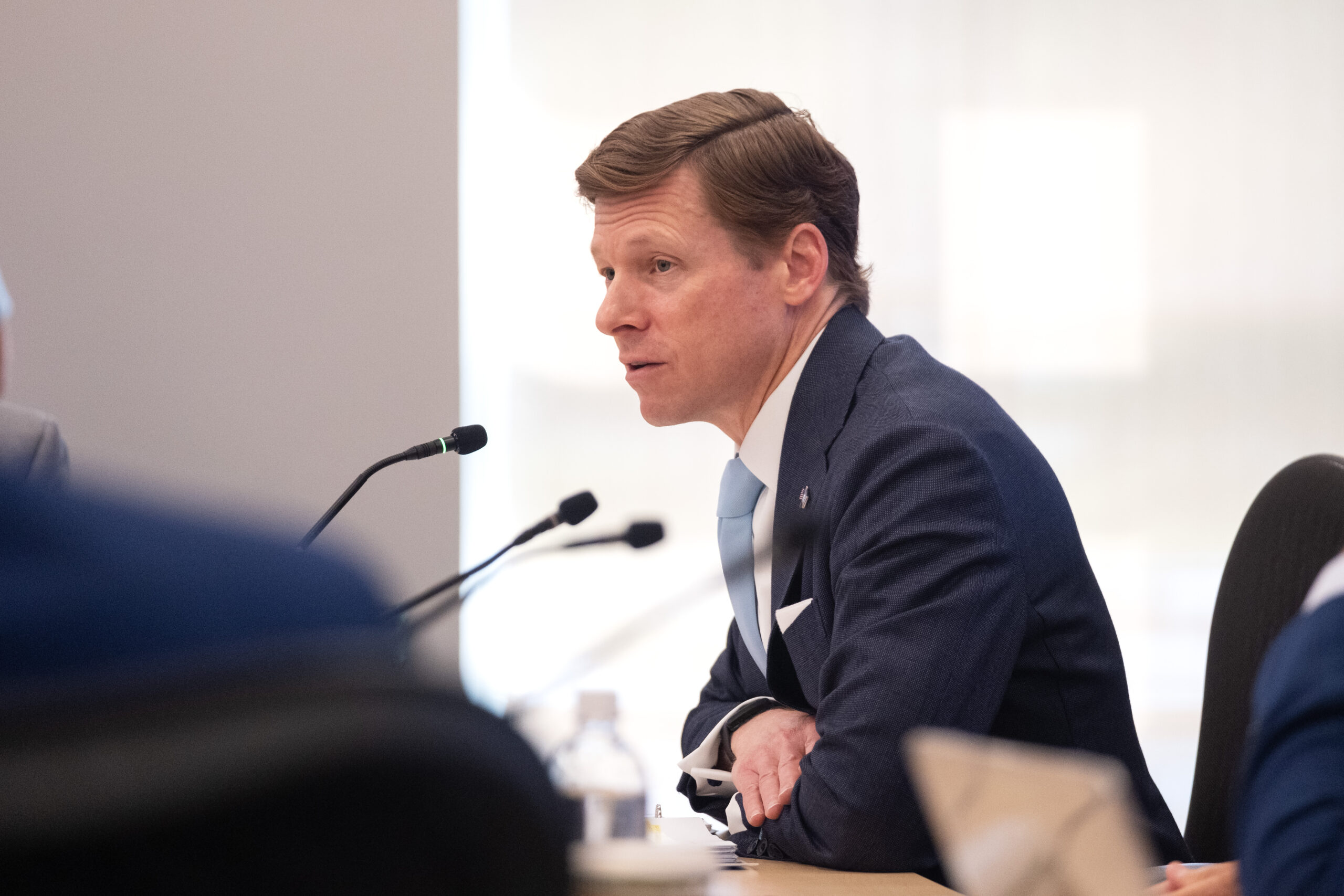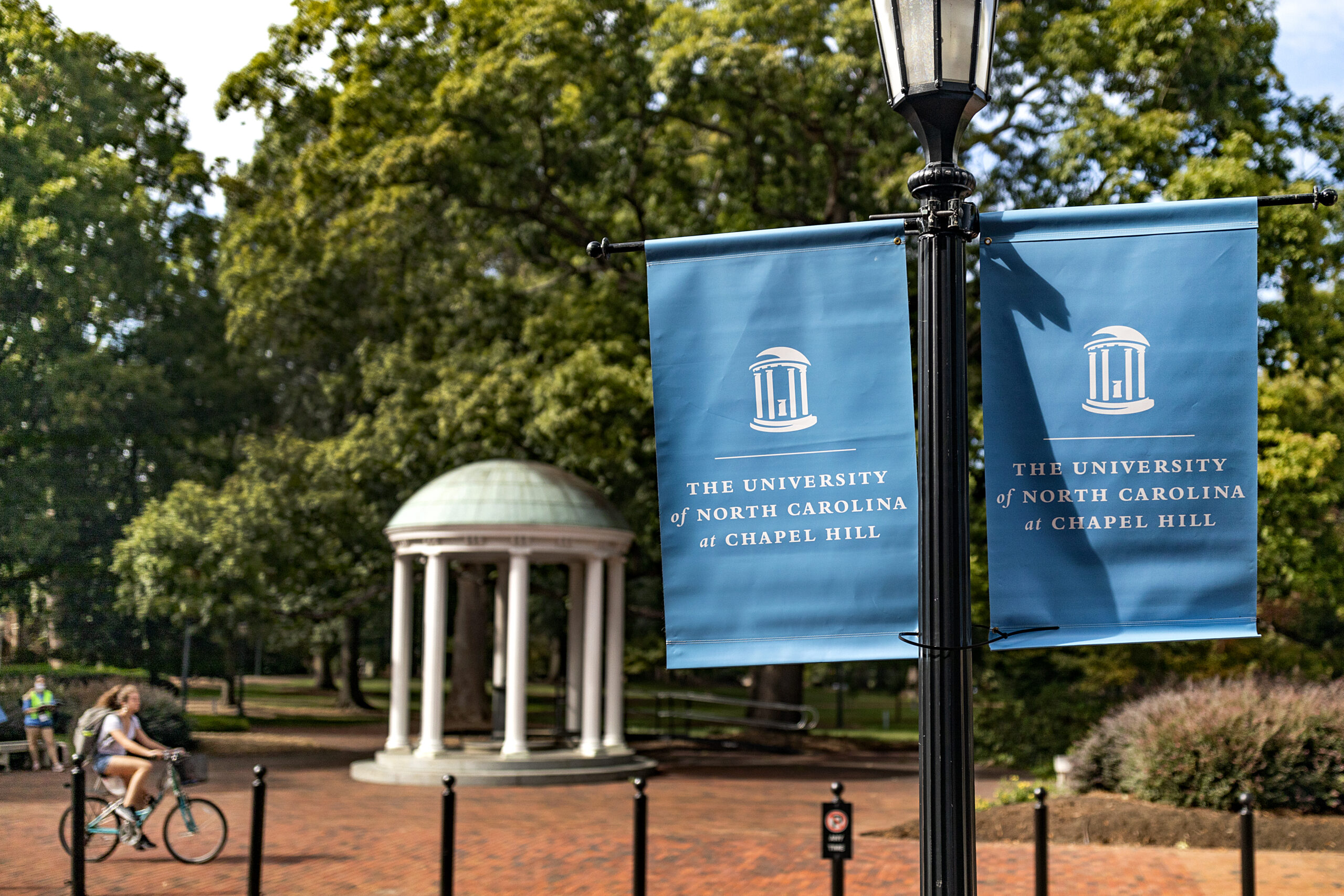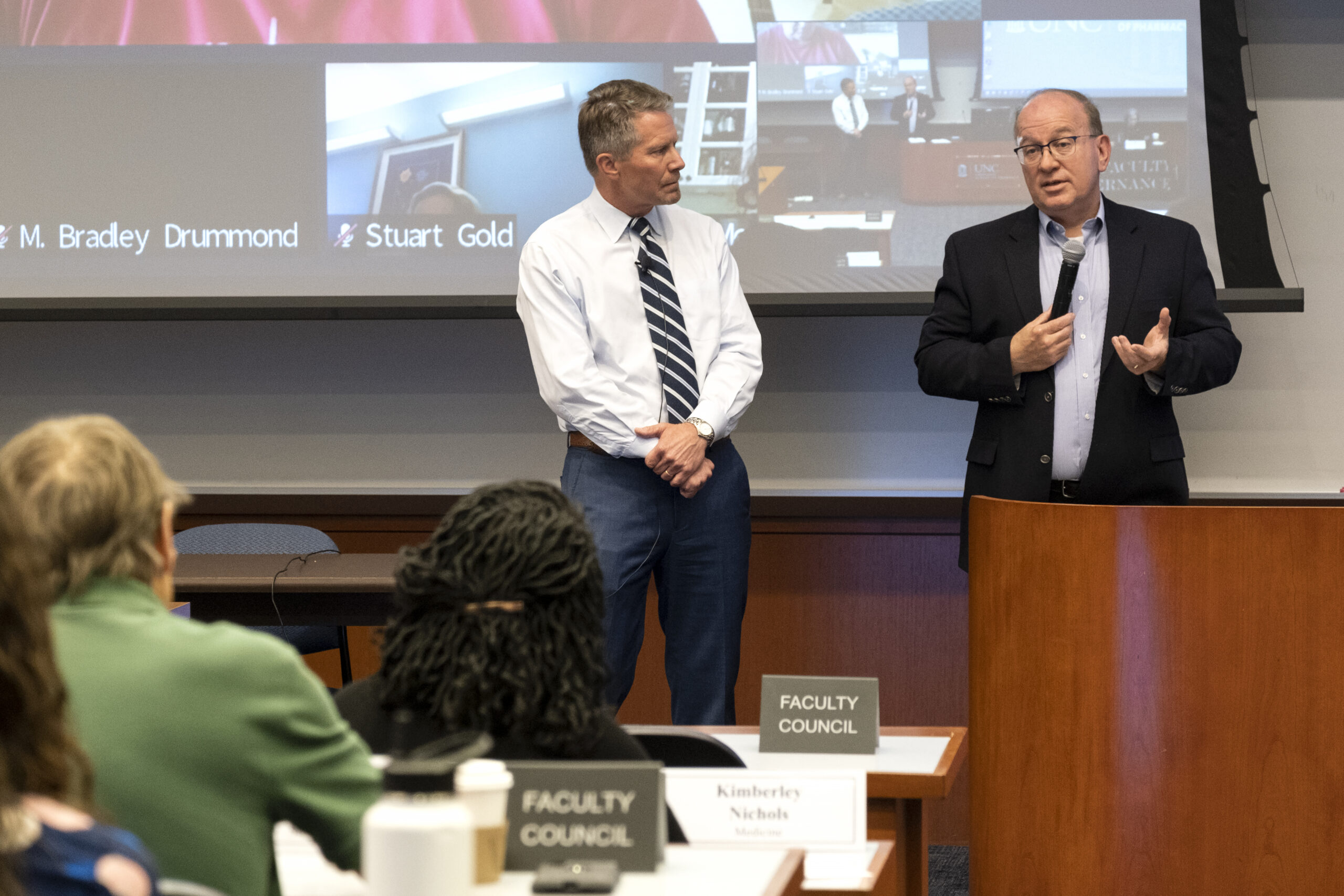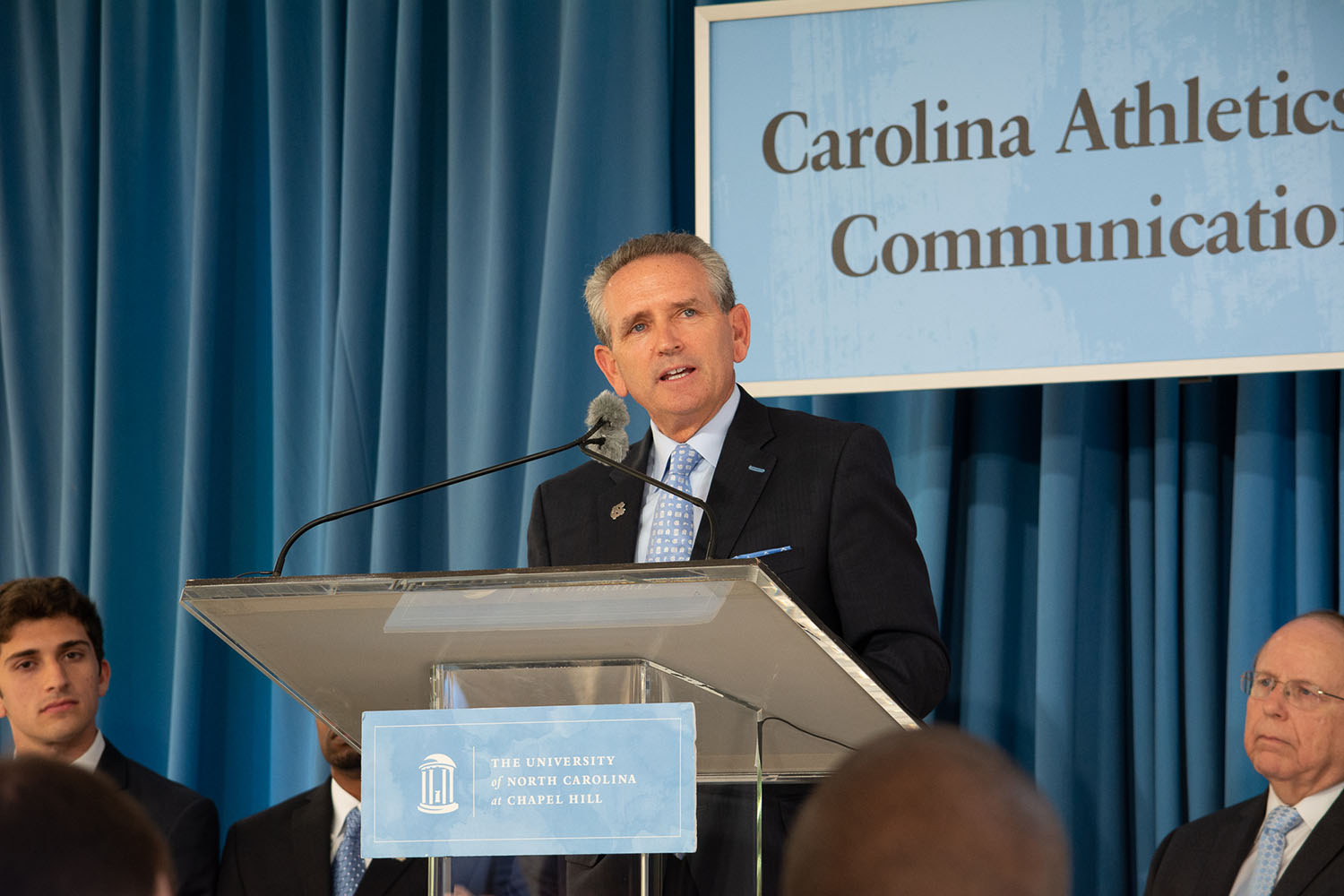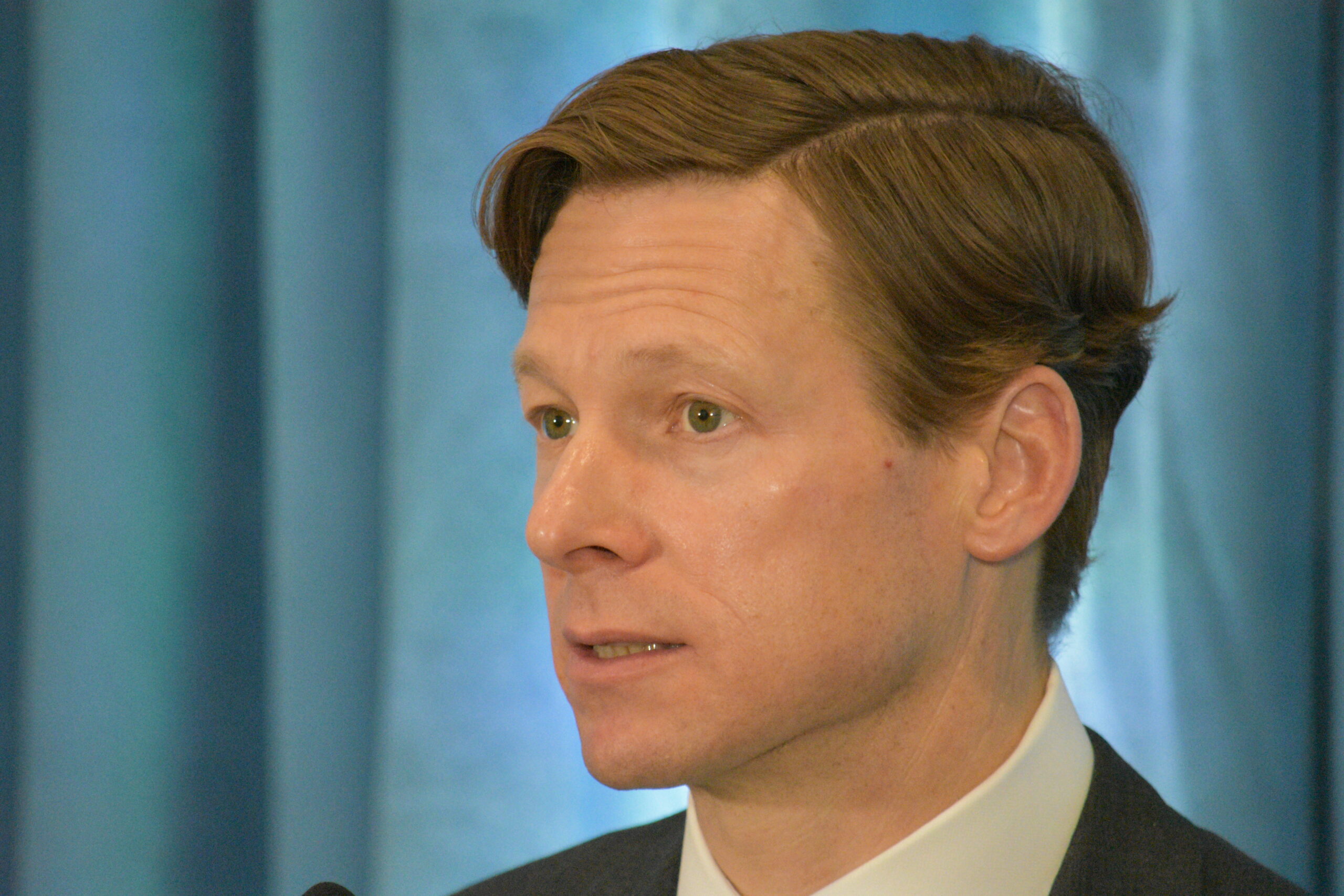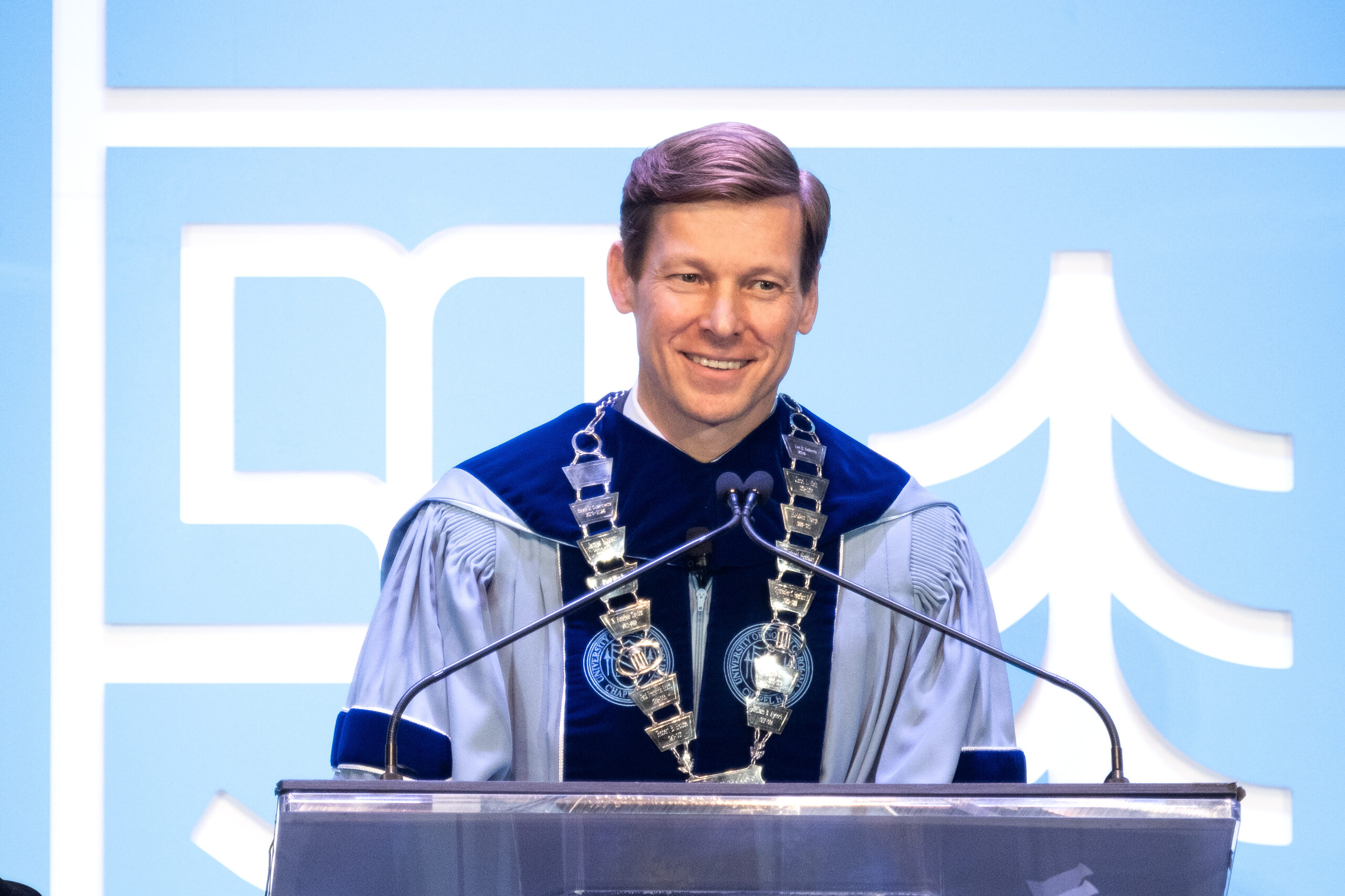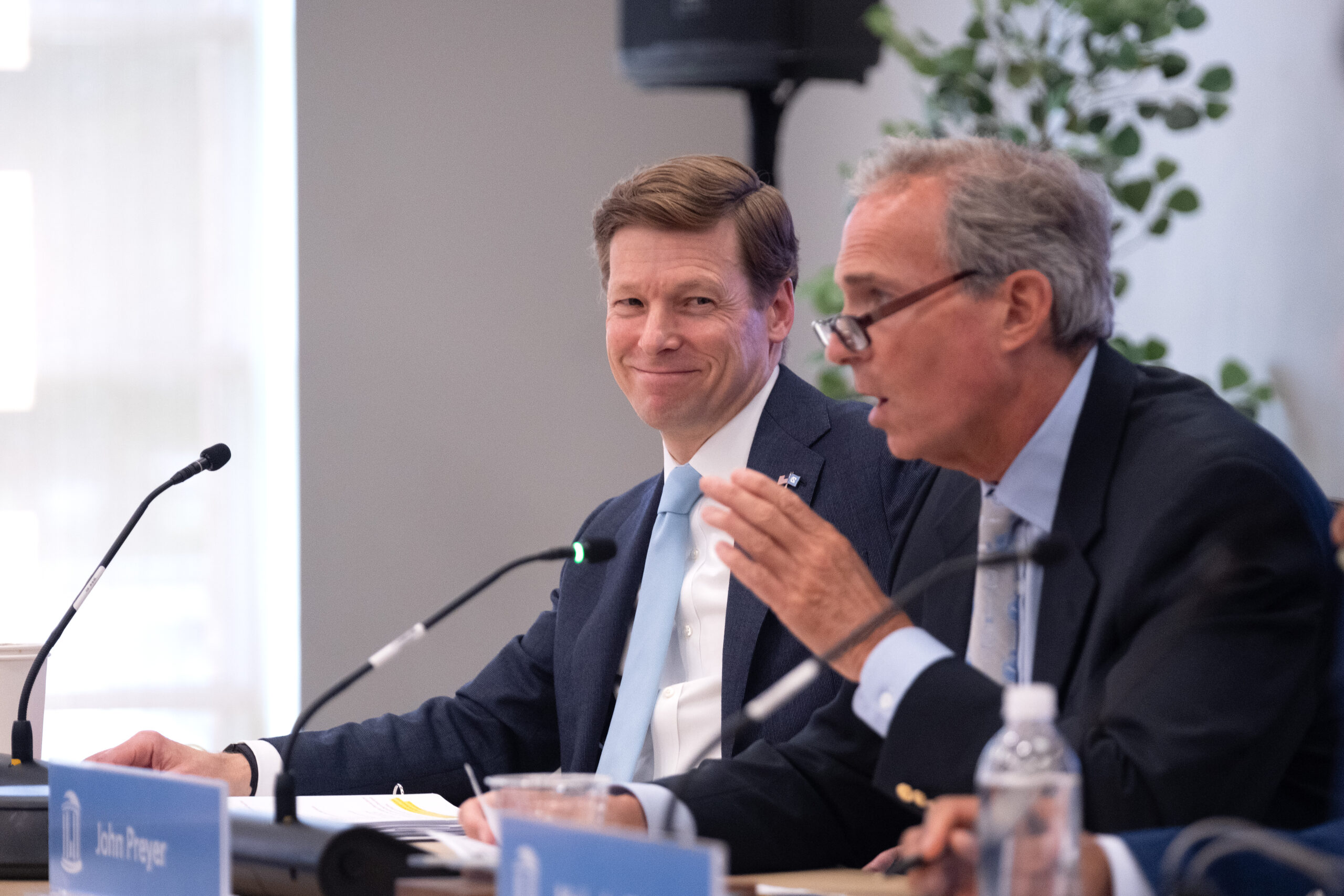The ongoing coronavirus pandemic has made it challenging for UNC officials to project its revenue for the fiscal year, meaning it’s unclear how funding for faculty, programs and much more may be reached. During Friday’s meeting of the university’s Faculty Council, several university leaders spoke about the uncertain next steps of how to budget with COVID-19 still impacting the state.
UNC Chancellor Kevin Guskiewicz recently stated the university faces an estimated $54 million in lost revenue from things like housing, dining, parking and campus health this fall. Interim Vice Chancellor for Finance and Operations Nathan Knuffman said in addition to those losses, the university is beginning to see the financial impact of lost patient revenue and the cancellation of attendance at athletics events.
“When including these impacts, structural issues and potential spring 2021 losses,” Knuffman said Friday, “we could see a financial impact of $300 million this fiscal year.”
Knuffman said this would represent an 8 percent loss in revenues, since the university operates on a $3.5 billion budget each year. Similar dips are also being projected for other “peer universities,” he said.
Those estimates do not include any changes in state funding for UNC, but whether those financial levels will stay the same is also in question. The North Carolina legislature is adjourned following a summer session and is slated to not hold regular meetings until after the November elections. With the state operating on a budget model approved more than two years ago, the result of a stalemate in 2019, Knuffman indicated he’s unsure whether to expect the same funding this next fiscal year.
“When we think about how the state balanced their budget this past year,” he explained, “[the state government] leveraged one-time sources. As we move forward, the question becomes does revenue rebound or is there other one-time funding such as federal or reserves, that allow the state to meet that spending level in the next fiscal year.”
With uncertainty on that front, it’s also unclear how UNC will fund programs and all its various faculty and staff. While most of the projected losses come from a fraction of the university’s funding sources, officials said discussions about changes to entire departments or furloughs are a future option.
Vice Chancellor for Human Resources Becci Menghini laid out the tools UNC has to handle personnel changes. While Carolina Athletics have already made some furlough decisions, she said any decision made in other realms would need to get approval and would not be made unilaterally by university leaders.
“Almost all the personnel actions we take are guided by [UNC] System guidance, the Office of State Human Resources guidance, or some sort of statutory guidance,” said Menghini. “So, the amount of leeway we as a campus have to make determinations about individual actions is relatively limited.”
Menghini also said if personnel pay cuts are needed, the efforts would be distributed so those with higher earnings would share more of the burden. She also mentioned seeking approval for an early retirement option, allowing faculty close to reaching their minimum years to leave more funds for others.
“We know that 35 percent of our workforce is eligible to retire in the next five years,” Menghini explained. “We estimate if we had an early retirement option that’s voluntary, some people would take advantage of it. [Our] advantage of having voluntary discontinuation would be if we had bigger budget impacts, the impact on those who remain would be lesser.”
Guskiewicz, who also spoke at the meeting, said there is some positive signs a budget impact may not be as severe as projected. He pointed to enrollment staying steady, with credit hours increased compared to this point last year. That does not mean, however, there won’t be challenging deliberations over funding.
“We’re going to continue to communicate to the campus about these budget issues and how they might affect our students, faculty and staff,” said the chancellor. “But we’ve just begun these budget meetings with the units [Knuffman] mentioned where we’re going to have to have difficult conversations with deans and unit finance leads. But we’re going to do everything we can to balance keeping everyone safe while trying to keep everyone [funded].”
Knuffman says UNC officials will have a better idea of the revenue forecast toward the end of September, which will be the end of the first quarter of the fiscal year.
Chapelboro.com does not charge subscription fees. You can support local journalism and our mission to serve the community. Contribute today – every single dollar matters.



